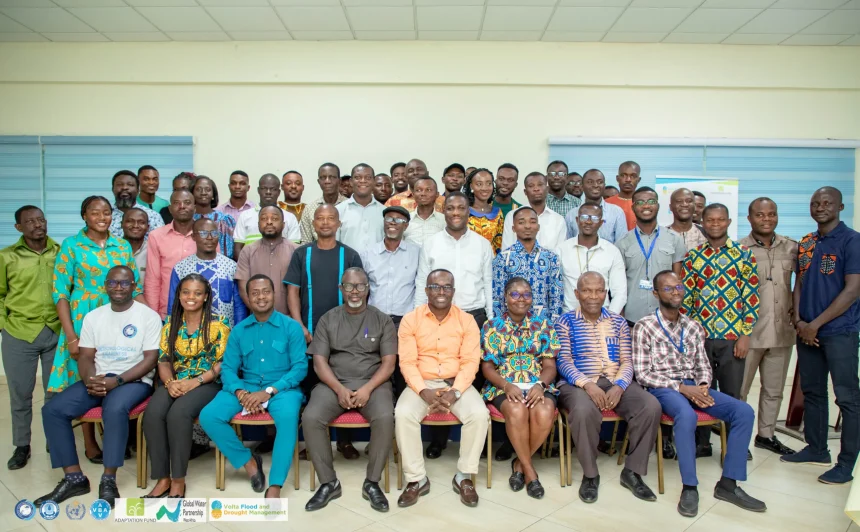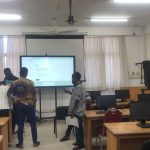The Ghana Meteorological Agency (GMet) organized a media training and stakeholder engagement workshop on the theme, ‘Integrating Flood and Drought Management and Early Warning for Climate Change Adaptation in the Volta Basin’ at Erata hotel, Accra.
The aim of the program, which took place on 8th March, 2024 was to educate the media and other stakeholders like farmers to be abreast of the issues of climate change and interpretation of meteorological and hydrological information in order to amplify sensitization and awareness on climate change.
Officers from other institutions like the Ghana Water Resource Commission and Ghana Hydrological Authority were brought on board to also present on the roles that their sector plays in climate change.
On questions raised over the state of Ghana’s water bodies and the measures being put in place to protect them, senior officer at the Ghana Water Resource Commission, Ms. Adwoa Afran explained that the commission was putting in efforts to ensure such water bodies are not encroached.
“The commission is currently collaborating with District Assemblies to check the encroachment of riverbanks. Also, as the commission is solely in charge of issuing licenses for the use of our water [bodies], we ensure that those who seek our services do not go against our agreement. More importantly, there are mechanisms in place to enforce this.”
On issues pertaining to the resilience of the drainage systems in Ghana, especially in Accra, the Director of the Ghana Hydrological authority, Dr. Sylvester Darko revealed that the authority is currently on an exercise to clear all the major drainage systems in the region to pave way for the rains wile ahead of the rainy season.
Senior meteorologist at GMet, Mr. Joshua Asamoah also gave a presentation with projections of the havoc climate change is posing on countries housing the Volta Basin, depicting the possible future detriments if measures are not taken to address the issue of climate change effectively.
Eventually, Senior Meteorologist at GMet, Mr. David Quaye announced that plans to introduce a climate atlas. The atlas would include collections of maps, graphs, charts (projections) on unexpected future changes in the climate, including temperature, precipitation derived indicators.
–
Story by: Abdul Wahab Razak | univers.ug.edu.gh




